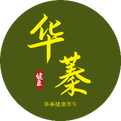Click the blue text to follow us


Chronic cold legs, diarrhea, and menstrual pain in women may all be caused by an imbalance of cold and heat in the body.
In the human body, the heart corresponds to the Li (离) trigram, representing fire, akin to the sun in the sky; the kidneys correspond to the Kan (坎) trigram, representing water, similar to the rivers on the ground. During hot summer days, standing by the river, one feels a refreshing coolness. Why is this? Because the water absorbs some heat as it evaporates under the sun, making one feel cool. The same principle applies to the human body; under normal circumstances, kidney water, aided by the rising liver qi, ascends to nourish the heart fire, preventing excessive heart fire and irritability. However, when kidney water is deficient, heart fire is no longer restrained, leading to excess heart fire, causing irritability and cravings for cold foods. In summer, we can feel that the water temperature is warmer than in winter because sunlight raises the water temperature, while underground well water remains cool due to lack of sunlight. Similarly, in our bodies, heart fire can descend through the stomach qi and lung qi, warming the lower body; if heart fire cannot descend, the lower body feels cold, leading to discomfort from cold foods, diarrhea, and cold legs. Women may also experience menstrual irregularities and pain. Therefore, when treating diseases characterized by heat above and cold below, it is akin to placing well water under the sun to warm it; as long as we guide the heart fire downwards to warm the kidney water, the lower body will naturally warm up. When cold and heat are imbalanced, it is not only about tonifying kidney yang but also about regulating the liver, lungs, and stomach. Diseases in the human body can find corresponding treatment principles in nature. Many people suffer from chronic cold in the waist and legs; when they consult a TCM practitioner, they are often told, “You have kidney yang deficiency and excess cold dampness in your body; you need to take herbs that tonify kidney fire and dispel cold and dampness!” Such herbs may provide immediate relief, but soon after, the cold returns! They take more, and again, the cold returns! Treating the illness feels like a tug-of-war, endlessly. Why is this? Because the body’s cold is finite! Understanding this issue can lead to a complete resolution of the body’s cold! If not understood, one will remain trapped in an endless cycle of tonifying fire and dispelling cold! There is a saying in life: “Help in emergencies but not in poverty”; poverty cannot be solved by temporary relief; escaping poverty is key! Enabling the impoverished to create wealth is essential for true escape from poverty! “Teaching a person to fish” is far more important than “giving a person a fish”! Tonifying kidney yang can dispel cold from the lower jiao, which is indisputable, but how to prevent one’s kidney yang from becoming deficient is a profound question. The cold in the lower body needs kidney yang to warm it, and the source of kidney yang is heart fire! We know that in nature, fire rises, and water flows down; this is the nature of things, so it is also easy for the body to have fire rising and cold seeping down. To prevent the cold evil from becoming heavy in the lower jiao, one must make the water rise and the fire descend. Water rising requires the liver qi to ascend, so one must maintain a pleasant mood and connect with nature, allowing the liver qi to remain smooth, so that kidney water can nourish heart fire, preventing irritability; at the same time, one should avoid staying up late, as it can harm kidney yin. If kidney yin is damaged and insufficient, even smooth liver qi cannot nourish heart fire. Fire descending requires the descending force of lung and stomach qi. Often, irregular eating and a restless mind can affect the downward movement of heart qi, preventing it from reaching the kidneys. “The heart of a sage is like a pearl in the abyss, while the heart of an ordinary person is like a ladle in water!” Observing those who are calm and composed, they rarely exhibit excessive fire in the upper jiao because the fire in the upper jiao is restrained by lung qi, allowing it to descend and warm kidney water, nourishing kidney yang.In summary, in daily life, one should not only focus on kidney yang but also on enhancing heart yang. Moxibustion can be used on the Xin Yu (心俞) point, Zhi Yang (至阳), Ju Que (巨阙), and Guan Yuan (关元) to enhance heart yang; and on the Ming Men (命门), Qi Hai (气海), Guan Yuan (关元), and Yong Quan (涌泉) points to enhance kidney yang.
When cold and heat are imbalanced, it is not only about tonifying kidney yang but also about regulating the liver, lungs, and stomach. Diseases in the human body can find corresponding treatment principles in nature. Many people suffer from chronic cold in the waist and legs; when they consult a TCM practitioner, they are often told, “You have kidney yang deficiency and excess cold dampness in your body; you need to take herbs that tonify kidney fire and dispel cold and dampness!” Such herbs may provide immediate relief, but soon after, the cold returns! They take more, and again, the cold returns! Treating the illness feels like a tug-of-war, endlessly. Why is this? Because the body’s cold is finite! Understanding this issue can lead to a complete resolution of the body’s cold! If not understood, one will remain trapped in an endless cycle of tonifying fire and dispelling cold! There is a saying in life: “Help in emergencies but not in poverty”; poverty cannot be solved by temporary relief; escaping poverty is key! Enabling the impoverished to create wealth is essential for true escape from poverty! “Teaching a person to fish” is far more important than “giving a person a fish”! Tonifying kidney yang can dispel cold from the lower jiao, which is indisputable, but how to prevent one’s kidney yang from becoming deficient is a profound question. The cold in the lower body needs kidney yang to warm it, and the source of kidney yang is heart fire! We know that in nature, fire rises, and water flows down; this is the nature of things, so it is also easy for the body to have fire rising and cold seeping down. To prevent the cold evil from becoming heavy in the lower jiao, one must make the water rise and the fire descend. Water rising requires the liver qi to ascend, so one must maintain a pleasant mood and connect with nature, allowing the liver qi to remain smooth, so that kidney water can nourish heart fire, preventing irritability; at the same time, one should avoid staying up late, as it can harm kidney yin. If kidney yin is damaged and insufficient, even smooth liver qi cannot nourish heart fire. Fire descending requires the descending force of lung and stomach qi. Often, irregular eating and a restless mind can affect the downward movement of heart qi, preventing it from reaching the kidneys. “The heart of a sage is like a pearl in the abyss, while the heart of an ordinary person is like a ladle in water!” Observing those who are calm and composed, they rarely exhibit excessive fire in the upper jiao because the fire in the upper jiao is restrained by lung qi, allowing it to descend and warm kidney water, nourishing kidney yang.In summary, in daily life, one should not only focus on kidney yang but also on enhancing heart yang. Moxibustion can be used on the Xin Yu (心俞) point, Zhi Yang (至阳), Ju Que (巨阙), and Guan Yuan (关元) to enhance heart yang; and on the Ming Men (命门), Qi Hai (气海), Guan Yuan (关元), and Yong Quan (涌泉) points to enhance kidney yang.

